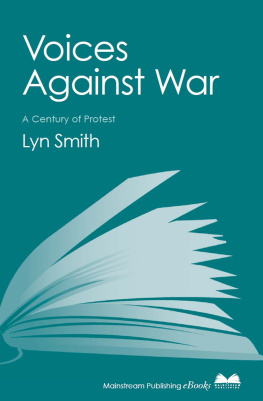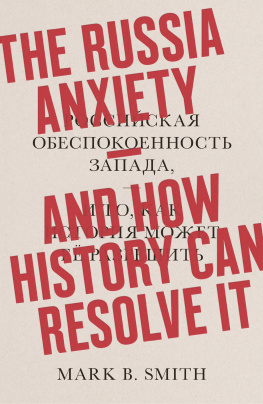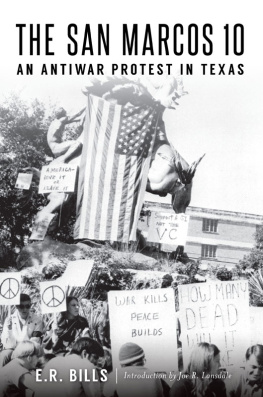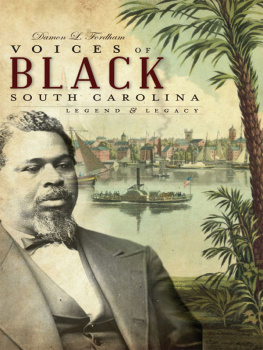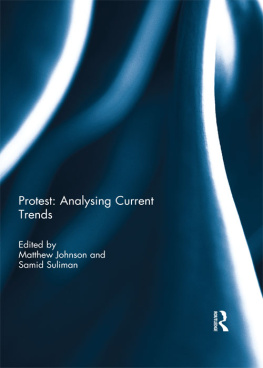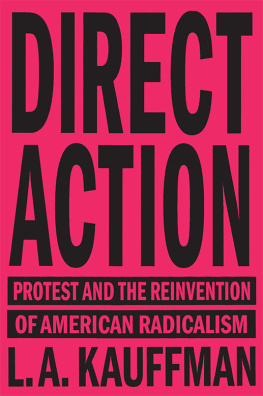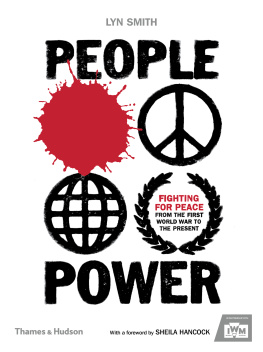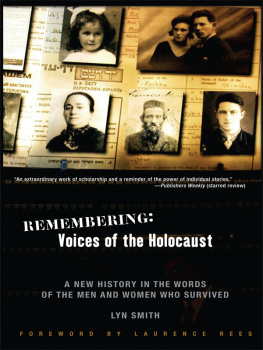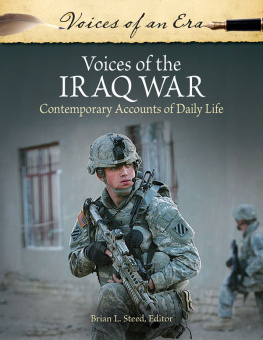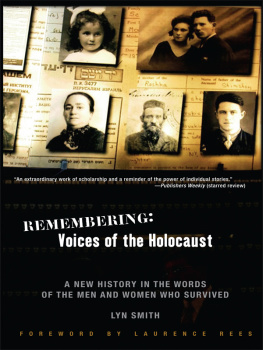About the Author
Lyn Smith is a university lecturer and oral history interviewer. She is the author of Forgotten Voices of the Holocaust, Pacifists in Action and the bestselling Young Voices.
To kill one man is to be guilty of a capital crime, to kill ten men is to increase the guilt ten-fold. This the rulers of the earth all recognise, and yet when it comes to the greatest crime the waging of war on another state they praise it!... So those who recognise a small crime as such, but do not recognise the wickedness of the greatest crime of all the waging of war on another state cannot distinguish right and wrong. So as to right and wrong, the rulers of the world are in confusion.
Mozi, China, circa 470391 BC
VOICES AGAINST WAR
A CENTURY OF PROTEST
Lyn Smith
This eBook is copyright material and must not be copied, reproduced, transferred, distributed, leased, licenced or publicly performed or used in any way except as specifically permitted in writing by the publishers, as allowed under the terms and conditions under which it was purchased or as strictly permitted by applicable copyright law. Any unauthorised distribution or use of this text may be a direct infringement of the authors and publishers rights and those responsible may be liable in law accordingly.
Epub ISBN: 9781845969820
Version 1.0
www.mainstreampublishing.com
This edition, 2010
Copyright Lyn Smith and the Imperial War Museum 2009
All rights reserved
The moral right of the author has been asserted
First published in Great Britain in 2009 by
MAINSTREAM PUBLISHING COMPANY
(EDINBURGH) LTD
7 Albany Street
Edinburgh EH1 3UG
ISBN 9781845965990
No part of this book may be reproduced or transmitted in any form or by any other means without permission in writing from the publisher, except by a reviewer who wishes to quote brief passages in connection with a review written for insertion in a magazine, newspaper or broadcast
The author has tried to clear all copyright permissions, but where this has not been possible and amendments are required, the publisher will be pleased to make any necessary arrangements at the earliest opportunity
Letter by A.A. Milne 1939 the Estate of C.R. Milne, reproduced with permission of Curtis Brown Group Ltd
Unless otherwise credited, all images come from the Imperial War Museum. Image library reference numbers are given in brackets after the caption
A catalogue record for this book is available from the British Library
1 3 5 7 9 10 8 6 4 2
Acknowledgements
Eyebrows have often been raised at the thought of the Imperial War Museum, of all places, housing one of the largest sound archives of an anti-war movement in the world, not least by those invited by the Museum to record their testimonies on the topic. But this should not be too surprising as the Museums writ has always been much wider than the sharp end of war. As its 21st Annual Report, published on the eve of the Second World War, explained, as well as providing a lasting memorial to common effort and sacrifice, it also aimed to demonstrate the futility of war and stated that its task was to make a historical record of war that was to end war. But it is true to say that, although all the main collections contain material relating to conscientious objection, anti-war protest and peace campaigning, the issue was not given much prominence by the Museum until the 1970s, the focus being very much on the combatants and accoutrements of both world wars and other twentieth-century conflicts. The Sound Archive has been paramount in bringing this important topic to the fore. In the mid-1970s, a large collection of testimonies of First World War conscientious objectors was recorded, and over the past 30 years, the archive has expanded to include the development of the movement throughout the twentieth century and beyond, up to the very moment this book goes to print.
It is on this vast and rich archive that Voices Against War is mainly based. My thanks to those within the Sound Archive: Peter Hart, Richard McDonough, Richard Hughes and James Atkinson, with a special tribute to the Keeper of the Sound Archive, Margaret Brooks, who pioneered the anti-war project and who has supported my interviewing work on the subject as well as this book. I am very appreciative of the help given by Roderick Suddaby, Tony Richards, Sabrina Rowlatt and the staff of the Documents Department, and those in the Reading and Listening rooms who have provided tapes and other materials so willingly and efficiently. Hilary Roberts and Ian Carter of the Photograph Archive also deserve my thanks. I would like to make special acknowledgement to Abbie Ratcliffe, who has guided this book through to publication, and also to Madeleine James and Sarah Paterson for their assistance. The enthusiasm of Elizabeth Bowers for this project is also much appreciated. Terry Charmans expertise as the Museums senior historian is greatly valued; I am very grateful for his helpful criticisms and suggestions. At Mainstream Publishing I thank Bill Campbell and Graeme Blaikie for their support. I also wish to express my appreciation to Karyn Millar for her patience and fine editing skills, and to thank Sharon Campbell and Kate McLelland for their valued assistance. I am indebted to my agent Barbara Levy for her advice and assistance throughout. Roderick Bailey, Fran Whittle and Debbie Locke have given their own special help, for which I am grateful. My thanks to all the members of my family and friends, whose encouragement has been so vital, with particular thanks to my husband, Peter, who has lived with anti-war protesters for many years, always interested, ever supportive.
Especially, I must thank Robert Fisk for his characteristically thought-provoking foreword; and Don McCullin for permission to use extracts from his IWM filmed interview of 2009.
Finally, my thanks to copyright holders for granting permission for the use of recordings, documents and photographs, with particular thanks to Mr Wilfrid Hayler and Kazuyo Yamane. My apologies to any copyright holder I have been unable to trace. This book would not have been possible without the cooperation of those who have given of their time and effort to record their testimonies, and I gladly acknowledge that my greatest debt is to them.
Lyn Smith
Foreword
My father used to call them conchies. After dozens of postcards from his old Birkenhead schoolmates all of which I have, all of whom died in the 191418 war he headed off to Ireland and then to do his duty in the Third Battle of the Somme in 1918. He was an old-fashioned patriot and wasnt interested in men who wouldnt fight for their country. He gave me A.E.W. Masons The Four Feathers to read and insisted I watch the old Zoltan Korda movie of the 1902 book in which young Harry Feversham leaves his regiment before the Sudanese campaign and receives three white feathers from his friends and one from his fiance.
Bill Fisk wasnt trying to teach me lessons about cowardice. He just didnt want his son to be a Benjamin Britten or a W.H. Auden or a D.H. Lawrence, skiving off to America or the English countryside when the enemy was at the gates. In 1940, when the Nazis planned to invade Britain, MI5 asked Bill to lead the resistance movement in his home town of Maidstone I long ago gave the Imperial War Museum his plans for blowing up Maidstone East railway bridge when a German troop train was passing over it and Bill said yes, but of course the Germans would quickly have captured him and Bill would have been shot as a terrorist. In which case there might one day after the liberation of the United Kingdom have been a nice little memorial stone to his memory in All Saints Church, Maidstone. But I wouldnt exist.



